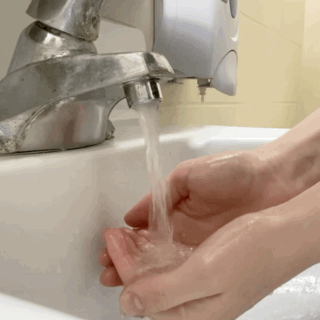Back in March 2020, Taylor Boelte was finishing up her nursing clinical shift when the hospital told her she wasn’t allowed to come back. Not just her, all nursing students had their clinicals cut short as COVID-19 spread across the country.
“Clearly the hospitals weren't prepared, and we weren't really expecting for COVID to have this impact,” said Boelte. “It just kind of came all quickly but I don't really remember there being like a huge panic beforehand. I think it all just came at once.”
The students had to leave for liability reasons, but also because hospitals were running out of PPE. They didn’t have enough masks or gowns to support more staff with COVID patients coming in.
Around the same time, her nursing classes at Lewis University went remote. Nursing is about as hands-on of a profession as it gets, so the coursework had to shift dramatically.
Dr. Julia Koklys is a nurse practitioner and chair of the nursing department at Lewis University. She said students got to work in telehealth and they tried to utilize new technology to make the experience as practical as possible.
“There are programs like i-Human where they can virtually do physical exams on patients,” said Koklys.
Boelte said the software allows students to evaluate cases and develop the judgment skills they need in the hospital.
“You would do your assessments and nursing care plans and learn about their diagnoses. But obviously, it's not the same as having a real patient,” she said.
Some students, especially in the nurse practitioner program, are seeing their progress delayed because they haven’t been able to meet the direct patient care requirements.
Through the summer and early fall, many Lewis students, including Boelte, were able to go back for their clinicals. Koklys said they focused on students who didn’t get much of an opportunity before the pandemic, so they could have some on-the-ground experience.
Boelte said when she returned, the atmosphere of the hospital was palpably different than before the pandemic.
“I wasn't working on COVID floors, but I did have an ICU rotation. So, all of those nurses had taken care of COVID patients in the heat of the pandemic, even now, and they're just worn out,” she said.
They’re working 80-hour weeks, in some cases living in a hotel room. She said it’s been a trial by fire of whether you’re cut out for the career, and she’s seen every side of the experience.
“We're in a position where we're gonna see a lot of people being saved and getting better. So, that's kind of hopeful in the midst of it,” she said. “What kind of shocked me was when I was working with nurses that have been working with COVID patients because there was almost kind of this immunity to people dying because they saw it all the time.”
So how do you train nursing students to cope with that? Especially when they can’t just take off their gear and hug after a tough day? Boelte said she’s heard of nurses getting COVID in break rooms the moment they let down their guard.
Even if it’s digitally, Koklys said they’ve found time to let students debrief with each other about their concerns, the joy and the pain that comes with the territory.
Boelte said they’ve had plenty of professional development classes, talking about end-of-life care and how to communicate with patients and their families. During the pandemic, it’s also forced them to figure out how to get family members on FaceTime or calls when COVID patients are dying alone.
Koklys said it’s a harsh reality, but it’s what nurses need to be able to do.
“It's a service job. It's a commitment to caring for people in their most vulnerable time. And I think that this pandemic has really opened everyone's eyes to what this calling truly is,” she said.
Boelte was living on-campus during her clinicals in the fall and wasn’t seeing her family -- she said just being on a college campus is enough of a risk. She graduated in December and is starting full-time soon at SwedishAmerican Hospital in Rockford.
She also just got her second dose of the vaccine, which she said felt like quite a relief after 2020.
“And I had COVID too, so I should be an antibody machine by now,” she said.
Telehealth and software like i-Human help make nursing education more flexible, and Koklys isn’t quite sure how the pandemic will alter her courses after it’s over. But she said there’s no way anything goes completely back to normal.
There will be more students though. “How to become a nurse” was the top-searched career on Google in 2020. Nursing and med school applications are up. Koklys said enrollment is steady for undergrad, but Lewis’ graduate program numbers have skyrocketed.
The vaccine provides more than a glimmer of hope, but the United States just set another recordfor COVID-19 deaths last week -- more than 22,000 Americans lost their lives.
Boelte said nurses can’t escape from COVID. It’s a threat at work, a threat at home and everywhere in between. Even so, she said she feels ready to strap on her N95 mask and get to work.


